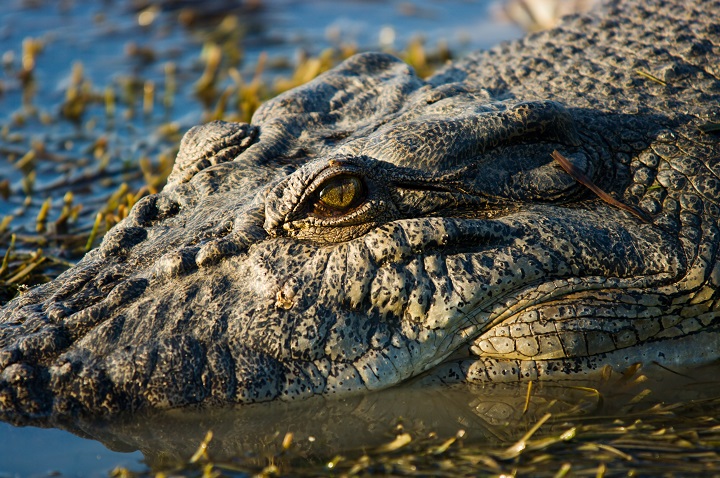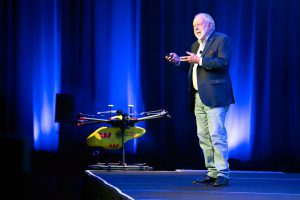
The Australian developers of the world’s first life-saver drones have announced a partnership with the Queensland government to use the technology to track crocodiles.

The Little Ripper drones, unmanned aerial vehicles tailored for search, rescue and lifesaving operations, were involved in a world-first rescue mission that saved the lives of two teenagers caught in waters of Lennox Head in northern NSW last year.
Little Ripper co-founder Dr Paul Scully-Power told delegates at the Amazon Public Sector Summit in Canberra this week that the company is partnering with the Queensland government on a new use for the technology.
The drones, introduced in partnership with Surf Life Saving Queensland, will patrol croc-infested waters with an AI-powered camera designed to specifically identify crocodiles and with the ability to distinguish them from other marine life.
Eighteen surf live savers from Mission Beach to Port Douglas in Queensland will be trained to operate the drones and the information from the drones will be used to monitor the size, location and behaviour of crocodiles on beaches to enable authorities to respond quickly to crocodile sightings.
Boosting awareness and understanding crocodile populations
The roll-out of the drones come as part of the government’s Crocwise program, an educational campaign aimed at improving community awareness about crocodiles.
Similar shark-tracking technology from the company was such a success that Dr Scully on Wednesday told the audience that the company had been approached by the Queensland government.
“[The Queensland Government] asked us to spot crocs – so we developed another type of spotter called Croc Spotter. “
Footage captured by the drones is transmitted to the cloud with a delay of less than one second using Amazon Web Services, and can be used to both identify and prevent attacks and to undertake rescue missions.
It is also hoped that the data from the drones can help researchers better understand crocodile populations across Queensland.
Terrified tourists a concern
But not everyone’s enarmoured of the plan. Queensland MP Bob Katter has slammed the plan, saying that targeted action is instead needed to cull crocodile populations.
“I don’t think it will achieve very much at all because they don’t remove the crocs. All it’s going to do is terrify tourists of four beaches. The tourism industry is in trouble in far north Queensland,” he told Government News.
Dr Scully’s rip-detection technology was lauded worldwide after footage of the rescue mission which saved the two young boys went viral online.
Now it’s hoped that the new technology will help to prevent crocodile attacks in Queensland croc hotspots, where there have been 12 fatal attacks in the last few decades and more than 20 non-fatal attacks, according to the Department of Environment.
The company also has shark-detection drones which can identify sharks with 90 per cent reliability and it’s a tech he says changed the face of shark detection.
“It’s mind boggling some little Aussie diggers can pull this off. But we did,” he said.
The drones also have a megaphone to alert swimmers of nearby danger.
The funding for the technology was first announced in July last year, when the Queensland Government announced a $105,000 grant to roll-out the program.
The founders of the tech have been approached by countries across the globe to deploy the drones including China, US, India, South Korea, Malaysia and Reunion Island.
Comment below to have your say on this story.
If you have a news story or tip-off, get in touch at editorial@governmentnews.com.au.
Sign up to the Government News newsletter